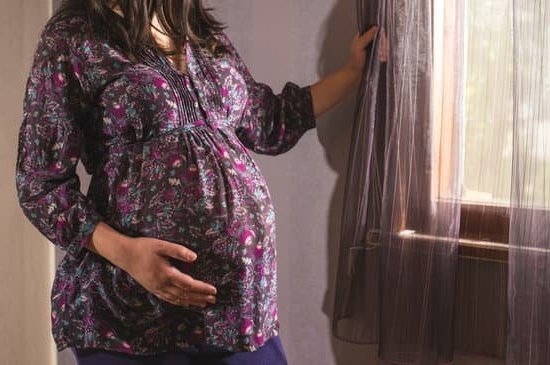Will I Have Discharge In Early Pregnancy
discharge during early pregnancy is common and is usually nothing to worry about. However, there are a few things you should know about discharge during early pregnancy.
First of all, the type of discharge you have can vary a lot. It can be thin and watery, or thick and gooey. It can also be clear, white, yellow, or green. And it can change throughout your pregnancy.
Most of the time, discharge during early pregnancy is caused by the increase in estrogen levels. This extra estrogen can cause the glands in your cervix to produce more mucus. The mucus can then flow out of your vagina.
Normal discharge during early pregnancy is usually harmless. However, there are a few things to watch out for. If your discharge is accompanied by a strong or unpleasant odor, or if it’s itchy or painful, you may have a vaginal infection. If this is the case, you should see your doctor.
Another thing to watch out for is bleeding. If you have any bleeding during early pregnancy, it’s important to call your doctor. Bleeding can be a sign of a problem, such as a miscarriage.
Overall, discharge during early pregnancy is usually nothing to worry about. But if you have any concerns, be sure to talk to your doctor.
When Does The Discharge Start During Pregnancy
The discharge during pregnancy can start as early as six weeks into the pregnancy, but it’s not always a sign that something is wrong. Most often, the discharge is just a result of the increased production of estrogen and other hormones that occur during pregnancy.
The discharge can be thin and watery, or thick and sticky. It may be white, yellow, or green, and it may have a bad odor. If the discharge is accompanied by itching, burning, or soreness, it may be a sign of a vaginal infection and you should see your doctor.
There are a number of things that can cause the discharge during pregnancy, including:
• Yeast infection – A yeast infection is caused by a fungus, and is the most common vaginal infection during pregnancy. It can cause a thick, white discharge that may have a bad odor.
• Bacterial vaginosis – Bacterial vaginosis is a bacterial infection that can cause a thin, grayish discharge with a fishy odor.
• Trichomoniasis – Trichomoniasis is a sexually transmitted infection caused by a parasite. It can cause a greenish-yellow discharge with a strong odor.
• Gonorrhea – Gonorrhea is a sexually transmitted infection caused by a bacteria. It can cause a thick, yellow discharge with a strong odor.
• Chlamydia – Chlamydia is a sexually transmitted infection caused by a bacteria. It can cause a thin, watery discharge.
If you are experiencing any of the symptoms of a vaginal infection, see your doctor for diagnosis and treatment.
Why Watery Discharge During Early Pregnancy
A watery discharge during early pregnancy is common and is usually nothing to worry about. This type of discharge is usually thin and clear and is caused by the increased production of estrogen and other hormones. It can be a sign that the cervix is starting to soften and dilate in preparation for labor, but in most cases it is simply a normal part of pregnancy.
If you are experiencing a watery discharge during early pregnancy, there are a few things you can do to help relieve the symptoms. Try wearing loose-fitting clothing, avoid using harsh soaps or douches, and drink plenty of fluids. If the discharge is accompanied by itching, burning, or other symptoms, see your doctor for advice.
Do You Get Discharge From The Military For Pregnancy
Serving in the military is a huge commitment, and one that can be difficult to leave, even when you’re pregnant. But do you get discharged from the military for pregnancy
The answer is complicated. In general, military members are not automatically discharged from the military for getting pregnant. However, there are some cases in which a military member may be discharged for pregnancy.
For example, if a military member becomes pregnant during her initial period of service, she may be discharged. Additionally, if a military member becomes pregnant within nine months of her separation from the military, she may be discharged.
There are also cases in which a military member may be required to take a pregnancy test. If the member tests positive, she may be discharged.
Ultimately, whether or not a military member is discharged for pregnancy depends on a variety of factors, including the branch of the military, the individual service member’s situation, and the policies of the specific military branch.
If you are a military member who is pregnant, it is important to speak with your commanding officer to learn more about your specific situation and the possible consequences of being pregnant while serving in the military.
Do You Have Less Vaginal Discharge During Period Or Pregnancy
There is a lot of discussion around vaginal discharge, especially during different times in a woman’s life, like when she is pregnant or on her period. So, what is the deal with vaginal discharge Is it normal to have less discharge during pregnancy or on your period
The short answer is: yes! It is normal to have less vaginal discharge during pregnancy and on your period.
When you are pregnant, your body is going through a lot of changes as it prepares to give birth. One of these changes is a decrease in the amount of vaginal discharge you have. This is because the body is producing less estrogen, which is responsible for the production of vaginal discharge.
When you are on your period, you are also going through a lot of changes. One of these changes is a decrease in the amount of vaginal discharge you have. This is because the body is producing less estrogen, which is responsible for the production of vaginal discharge. Additionally, the increase in progesterone that occurs during your period can also lead to a decrease in vaginal discharge.
So, if you are pregnant or on your period, don’t worry – it is normal to have less vaginal discharge!

Welcome to my fertility blog. This is a space where I will be sharing my experiences as I navigate through the world of fertility treatments, as well as provide information and resources about fertility and pregnancy.





